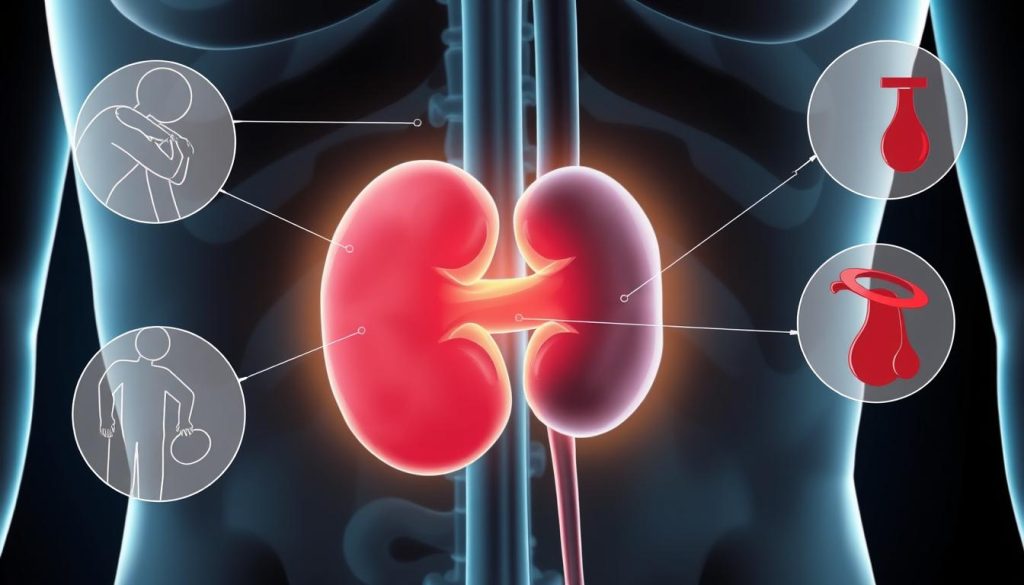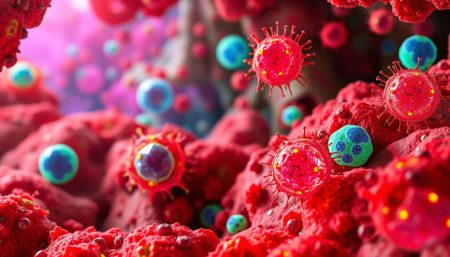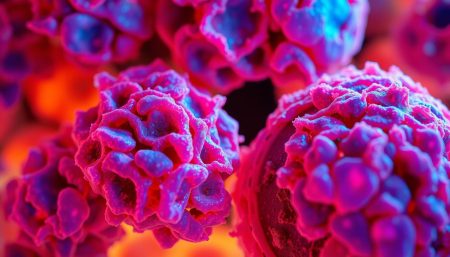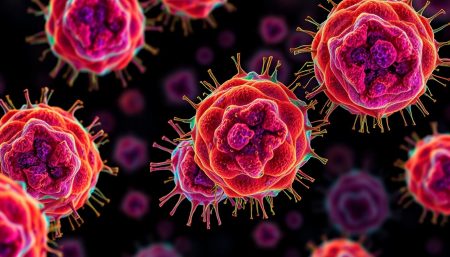Kidney cancer often hides quietly, making it important to know its early signs. Spotting these symptoms early can lead to quick treatment. Look out for blood in urine and persistent back pain, as they are warning signs.
This guide will help you understand the signs of kidney cancer. We’ll cover common symptoms and small changes that might mean trouble. Knowing these can help you catch problems early and improve your health.
Understanding Kidney Cancer: An Overview
Kidney cancer is a serious disease that affects many people each year. It starts when cells in the kidneys grow too much, forming tumors. These tumors can spread to other parts of the body. Knowing the basics of kidney cancer is key for early detection and treatment.
What Is Kidney Cancer and Who Is at Risk
Kidney cancer usually happens in adults over 50, with men more at risk than women. Smoking, being overweight, and high blood pressure can raise your risk. Kidney cancer symptoms include blood in urine, back pain, and unexplained weight loss.
Common Types of Kidney Cancer
There are several types of kidney cancer, each with its own traits:
| Type | Description | Prevalence |
|---|---|---|
| Renal Cell Carcinoma | Most common type, starts in the lining of small tubes in the kidney | 90% |
| Transitional Cell Carcinoma | Begins in the area where urine collects before moving to the bladder | 5-10% |
| Wilms Tumor | Rare type that mainly affects children | 1% |
The Importance of Early Detection
Spotting kidney cancer symptoms early is critical for treatment success. Signs like fatigue and weight loss might seem vague. But, when combined with other symptoms, they can indicate kidney cancer. Regular health check-ups and being aware of body changes can lead to early diagnosis and better treatment outcomes.
By learning about kidney cancer, including its types and risk factors, you can take steps to protect your health. Be alert to symptoms and seek a doctor’s advice if you notice any concerning changes in your body.
Kidney Cancer Symptoms: Primary Warning Signs
Spotting kidney cancer symptoms early is key to effective treatment. Some signs might seem minor, but knowing them can lead to quick medical help. Let’s look at the main warning signs for kidney cancer.
Blood in urine is a common symptom of kidney cancer. It can vary from a light pink to a darker red. If your urine looks different, see a doctor right away.
Back pain, often on one side, could also be a sign. This pain might not go away with usual pain relief. While many things can cause back pain, severe or unexplained pain needs a doctor’s check.
- Unexplained weight loss
- Fatigue or weakness
- Fever not related to an infection
- A lump or mass in the side or back
These symptoms don’t always mean kidney cancer, but they shouldn’t be ignored. If you notice blood in urine or persistent back pain, get a check-up with your healthcare provider.
Early detection of kidney cancer symptoms can greatly improve treatment results. Keep an eye on changes in your body and get regular health checks to catch issues early.
Blood in Urine: The Most Common Red Flag
Blood in urine, known as hematuria, is a common sign of kidney cancer. It can be scary, but knowing its types and causes is key.
Types of Hematuria
Hematuria has two forms:
- Gross hematuria: Visible blood in urine, turning it pink, red, or cola-colored
- Microscopic hematuria: Blood cells only detectable under a microscope
Both types can mean kidney cancer, but other issues can cause them too.
When to Seek Medical Attention
If you see blood in your urine, don’t panic. But don’t ignore it either. Call your doctor if you notice:
- Any visible blood in urine
- Persistent urinary changes
- Pain during urination
- Unexplained lower back pain
Spotting these symptoms early can help find kidney cancer sooner.
Other Causes of Blood in Urine
Blood in urine doesn’t always mean kidney cancer. Other reasons include:
- Urinary tract infections
- Kidney stones
- Enlarged prostate
- Certain medications
- Vigorous exercise
Your doctor can figure out the cause and suggest what to do next.
Persistent Back Pain and Its Connection to Kidney Cancer
Many people deal with back pain. But if it lasts and doesn’t get better, it might be serious. It could be a sign of kidney cancer symptoms that need attention.
Kidney tumors can cause pain in the lower back, often on one side. This pain is different from usual back pain. It’s a dull ache that doesn’t go away with rest or pain relievers.
If you have persistent back pain, watch for other symptoms. These might include blood in urine, unexplained weight loss, or feeling very tired. It’s important to pay attention to these signs.
Here’s how typical back pain differs from back pain that might mean kidney cancer:
| Typical Back Pain | Back Pain as Kidney Cancer Symptom |
|---|---|
| Improves with rest | Persists regardless of activity |
| Often related to physical activity | No clear cause or trigger |
| May be sharp or shooting | Usually a dull, constant ache |
| Responds to over-the-counter pain relievers | Doesn’t improve with standard treatments |
| Can affect various areas of the back | Often localized to one side of the lower back |
Not all persistent back pain means kidney cancer. Many other conditions can cause similar symptoms. But, if you have unexplained, ongoing back pain, see a doctor for a check-up.
Unexplained Weight Loss and Changes in Appetite
Weight loss and changes in appetite can be kidney cancer symptoms that often go unnoticed. Understanding these signs is key for early detection and treatment.
Understanding Sudden Weight Changes
Unexplained weight loss happens when you lose weight without trying. For kidney cancer, this might mean dropping 10 pounds or more without changes to diet or exercise. This weight loss often happens quickly and can be accompanied by a loss of appetite.
How Cancer Affects Metabolism
Kidney cancer can alter your body’s metabolism. Tumors may release substances that change how your body processes food and uses energy. This can lead to rapid weight loss even if you’re eating normally. Some people might experience a loss of appetite, making it hard to maintain weight.
Distinguishing Normal vs. Abnormal Weight Loss
Normal weight fluctuations are typically small and occur over time. Abnormal weight loss linked to kidney cancer is often:
- Rapid and significant (5-10% of body weight in 6 months)
- Accompanied by fatigue or weakness
- Persistent despite no changes in diet or exercise
- Combined with other symptoms like back pain or blood in urine
If you experience unexplained weight loss or significant changes in appetite, it’s important to consult your doctor for proper evaluation.
Chronic Fatigue and Weakness as Warning Signs
Feeling tired is normal, but persistent fatigue might mean something serious. Chronic fatigue and weakness are signs of kidney cancer that should not be ignored. These symptoms often start slowly, making them easy to overlook.
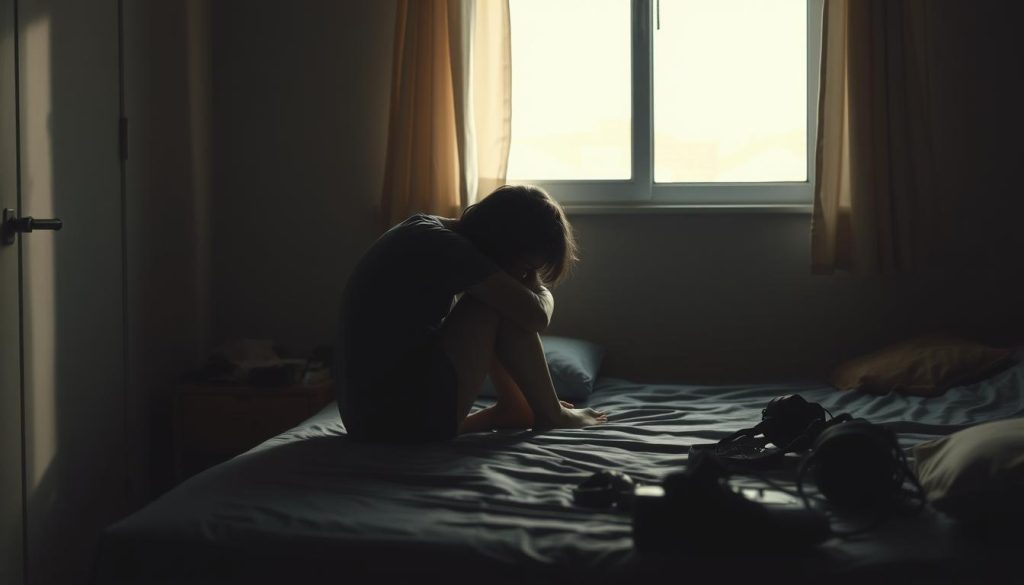
Kidney cancer can cause fatigue in different ways. The tumor might release substances that lower energy, or it could disrupt the body’s normal functions. People with kidney cancer often feel extremely tired, even after a full night’s sleep.
Here are some key points to consider about fatigue and kidney cancer:
- Persistent tiredness lasting weeks or months
- Weakness that interferes with daily activities
- Lack of energy improvement despite rest
- Unexplained fatigue accompanied by other symptoms
It’s important to remember that fatigue can be a symptom of many conditions, not just kidney cancer. Recognizing early warning signs is key for various cancers, including ovarian cancer. If you’re experiencing persistent fatigue and other symptoms of kidney cancer, see your doctor right away.
| Normal Tiredness | Chronic Fatigue (Possible Kidney Cancer Symptom) |
|---|---|
| Improves with rest | Persists despite adequate sleep |
| Related to recent activities | Unexplained and constant |
| Doesn’t interfere with daily life | Impacts work and social activities |
| No other concerning symptoms | May accompany other kidney cancer signs |
While fatigue is a common symptom of kidney cancer, it’s not a definitive sign. Always get medical advice for a proper diagnosis and treatment if you’re worried about your health.
Detecting an Abdominal Mass or Lump
A lump in the abdomen can be a sign of kidney cancer symptoms. It’s important to know how to check for abnormalities early. Let’s look at self-examination techniques and what a kidney mass might feel like.
Self-Examination Techniques
To check for a possible kidney mass:
- Lie on your back on a flat surface
- Place your hands on your abdomen, just below your ribcage
- Take a deep breath and press gently but firmly
- Feel for any unusual lumps or swelling
- Repeat on both sides of your abdomen
Do this self-exam every month, best after a shower when your skin is relaxed. If you notice any changes, contact your doctor right away.
What a Kidney Mass Feels Like
A kidney mass usually feels like a hard, smooth lump in your abdomen. It might not hurt when touched. The lump could be the size of a golf ball or bigger.
Remember, not all lumps are cancerous, but any unusual growth should be checked by a healthcare professional.
If you find a lump in your abdomen or notice other kidney cancer symptoms, don’t worry. Just schedule a doctor’s appointment for a detailed check-up. Early detection can greatly improve treatment results.
High Blood Pressure and Kidney Function Changes
Kidney cancer can quietly harm your body in unexpected ways. One surprising connection is between kidney tumors and high blood pressure. This link is key to understand, as it’s a less obvious symptom of kidney cancer.
Kidney tumors can mess with how your kidneys work. Your kidneys help control blood pressure by managing fluid and hormones. When a tumor disrupts this, it can cause your blood pressure to rise.
It’s vital to check your blood pressure regularly, but it’s even more important if you’re at risk for kidney cancer. If your blood pressure is high and doesn’t respond to treatment, it’s a warning sign.
Changes in kidney function can also show up as fatigue. Fatigue is common in many conditions, but with high blood pressure, it’s a sign to pay attention to. If you’re always tired and your blood pressure is high, see your doctor.
| Symptom | Possible Indication | Action |
|---|---|---|
| Unexplained high blood pressure | Potential kidney tumor | Consult doctor for evaluation |
| Fatigue with high blood pressure | Possible kidney function changes | Seek medical assessment |
| Resistant hypertension | Kidney cancer risk | Request a thorough kidney screening |
Early detection is critical in fighting kidney cancer. If you notice unusual blood pressure changes or unexplained fatigue, contact your healthcare provider. Regular check-ups and talking openly with your doctor are your best defense against kidney cancer and its symptoms.
Fever and Night Sweats: Secondary Symptoms
Kidney cancer symptoms often include pain or blood in urine. But some people may notice less obvious signs. Fever and night sweats can be signs of kidney cancer, though they’re often missed.
Understanding Cancer-Related Fever
Fever is a common symptom of kidney cancer. It happens when the body tries to fight the disease. Cancer cells can mess with the body’s normal functions, causing a rise in temperature.
Unlike regular fevers, cancer-related fevers can last for days or weeks. They don’t have a clear cause.
If you have unexplained fevers lasting more than a few days, see your doctor. They might check for kidney cancer or other issues.
When Night Sweats Signal a Problem
Night sweats can also be a sign of kidney cancer. They make bedding and sleepwear wet, disrupting sleep and causing discomfort.
| Symptom | Normal | Cause for Concern |
|---|---|---|
| Fever | Short-term, with known cause | Persistent, unexplained |
| Night Sweats | Occasional, mild | Frequent, severe, disrupting sleep |
Night sweats can have many causes. But if they’re persistent and you have other symptoms, see a doctor. They can figure out what’s causing it and what to do next.
Risk Factors That Increase Your Chances of Kidney Cancer
Knowing the risk factors for kidney cancer is key to staying healthy. Some risks we can’t control, but others we can manage. Let’s look at what might up your chances of getting this disease.
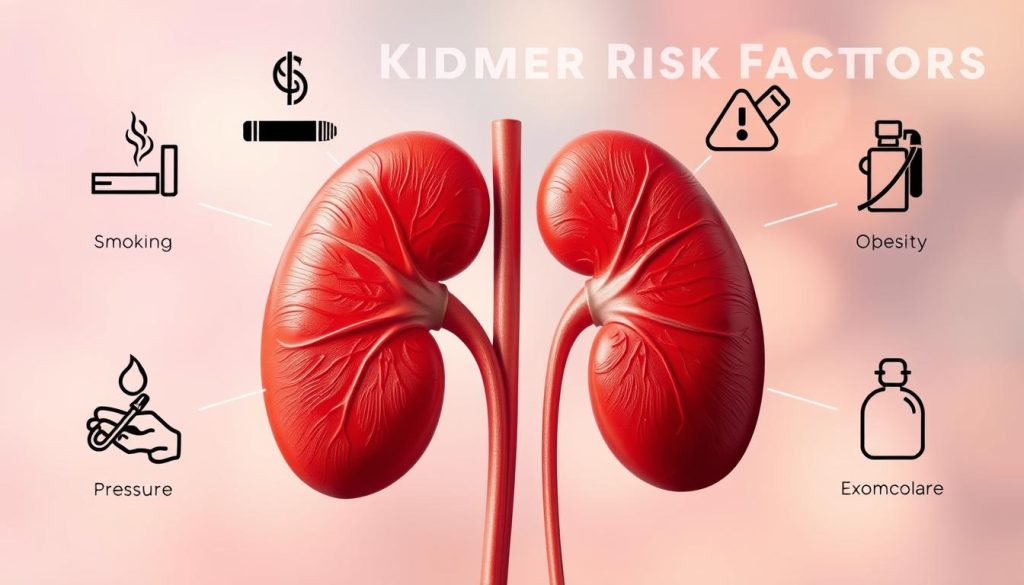
Age is a big factor in kidney cancer risk. As we get older, our risk goes up, with most cases found in people over 50. Men are more likely to get kidney cancer than women.
Genetics also play a part. If your family has a history of kidney cancer or certain inherited conditions, your risk might be higher. This includes von Hippel-Lindau disease and hereditary papillary renal cell carcinoma.
Lifestyle choices are important too. Smoking greatly increases your risk, doubling it. Being overweight also raises concerns, as it can change hormone levels and cause inflammation.
Environmental factors also matter. Exposure to chemicals like trichloroethylene can increase your risk. Jobs in industries like welding or petroleum refining can also be risky.
Some medical conditions are linked to a higher risk of kidney cancer. These include high blood pressure, chronic kidney disease, and long-term dialysis. It’s important to manage these conditions well.
While losing weight isn’t a risk factor, it can be a symptom of kidney cancer to watch for, if it’s unexplained. Remember, having risk factors doesn’t mean you’ll get kidney cancer. But being informed helps you make better choices and get medical help when needed.
Diagnostic Procedures for Kidney Cancer
When symptoms like blood in urine show up, doctors run tests to find the cause. These tests help spot cancer early and figure out how far it has spread. This makes treatment more effective.
Imaging Tests and Scans
Imaging tests are the first step to see the kidneys. CT scans give detailed 3D pictures. Ultrasounds use sound waves to create images. MRI scans show soft tissues clearly, helping find any unusual growths.
Blood and Urine Tests
Lab tests look for signs of kidney cancer. Urinalysis checks for blood in urine. Blood tests measure kidney function and search for cancer markers. These tests help guide further tests but can’t diagnose cancer on their own.
Biopsy Procedures
A biopsy is key to confirming kidney cancer. It involves removing a small tissue sample for examination. Fine-needle aspiration uses a thin needle, while core needle biopsies take larger samples for detailed analysis.
| Diagnostic Test | Purpose | Procedure |
|---|---|---|
| CT Scan | Detailed 3D imaging | X-rays from multiple angles |
| Urinalysis | Detect blood in urine | Urine sample analysis |
| Fine-Needle Biopsy | Tissue sample collection | Thin needle extraction |
Treatment Options and Early Intervention Benefits
Spotting kidney cancer symptoms early can lead to better treatment results. Back pain, a common symptom, might prompt patients to seek medical attention sooner. Early intervention often allows for a wider range of treatment options and better prognosis.
Surgical procedures are the main treatment for many kidney cancer cases. These may include partial or radical nephrectomy, depending on the tumor’s size and location. For smaller tumors, minimally invasive techniques like laparoscopic or robotic surgery can be used, resulting in faster recovery times.
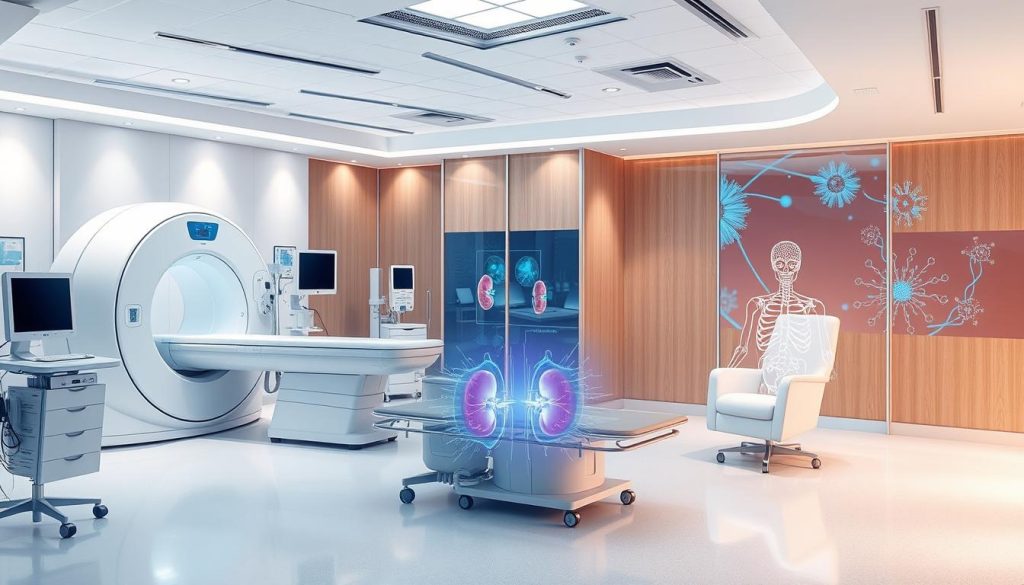
Targeted therapies have changed kidney cancer treatment. These drugs attack cancer cells while sparing healthy tissue. Immunotherapy, another groundbreaking approach, boosts the body’s natural defenses to fight cancer cells.
For patients with advanced kidney cancer, a combination of treatments may be recommended. This could include surgery followed by targeted therapy or immunotherapy. In some cases, radiation therapy might be used to alleviate symptoms or treat metastases.
| Treatment | Benefits of Early Intervention |
|---|---|
| Surgery | Higher chance of complete tumor removal |
| Targeted Therapy | More effective on smaller tumors |
| Immunotherapy | Better response when immune system is stronger |
| Radiation | May be avoided if caught early |
Early detection and treatment can significantly improve quality of life and long-term survival rates for kidney cancer patients. Regular check-ups and promptly reporting symptoms like persistent back pain can make a big difference in treatment success.
Prevention Strategies and Lifestyle Modifications
We can’t stop all kidney cancer, but some lifestyle changes can help. Making healthy choices is key to protecting your kidneys and overall health.
Diet and Exercise Recommendations
Eat a diet full of fruits, veggies, and whole grains for your kidneys. Try to avoid processed foods and red meat. Exercise, like brisk walking or swimming, keeps you healthy and lowers kidney cancer risk. Being overweight can increase your risk of kidney cancer.
Smoking Cessation
Quitting smoking is great for your kidneys. Smoking raises your risk of kidney cancer and other health issues. If you smoke, ask your doctor for help quitting. Your body will be grateful!
Regular Health Screenings
Don’t miss your check-ups! Regular health screenings can find kidney problems early. If you notice anything odd, like a lump, tell your doctor. Early detection is key to successful treatment. Stay on top of your health to keep your kidneys cancer-free.
FAQ
Q: What are the most common symptoms of kidney cancer?
A: Symptoms of kidney cancer include blood in urine, back pain, and unexplained weight loss. You might also feel tired all the time and notice a lump in your abdomen. But remember, these signs can also mean other things, so see a doctor to find out for sure.
Q: How is blood in urine related to kidney cancer?
A: Blood in urine, or hematuria, is often the first sign of kidney cancer. It can look like pink, red, or cola-colored urine. Sometimes, you might not see it with your eyes, but it shows up in urine tests. If your urine looks different, get it checked by a doctor right away.
Q: Can back pain be a sign of kidney cancer?
A: Yes, back pain, often on one side, can be a sign of kidney cancer. It happens when a tumor presses on nerves or organs. But back pain can also mean other things, so it’s key to talk to a doctor if it’s bad or lasts a long time.
Q: How does kidney cancer affect weight and appetite?
A: Kidney cancer can make you lose weight and lose your appetite. This is because cancer cells use up energy and change how your body works. If you lose a lot of weight or don’t feel like eating, get medical help to find out why.
Q: What causes fatigue in kidney cancer patients?
A: Fatigue in kidney cancer patients comes from fighting cancer, anemia, and changes in kidney function. It’s a tiredness that doesn’t get better with rest. If you’re always tired, talk to your doctor about it.
Q: How can I detect a lump or mass related to kidney cancer?
A: You might feel a lump in your abdomen or side if you have kidney cancer. But tumors are usually not felt until they’re big. Do regular self-checks and tell a doctor if you notice anything unusual.
Q: Can kidney cancer cause fever or night sweats?
A: Yes, kidney cancer can cause fever and night sweats, mostly in later stages. It’s your body’s way of fighting the cancer. If you have a fever or night sweats, see a doctor, as it could mean other things too.
Q: What are the risk factors for developing kidney cancer?
A: Risk factors for kidney cancer include smoking, being overweight, high blood pressure, and family history. Certain jobs and chemicals can also increase your risk. Knowing your risk can help you and your doctor plan the best care.
Q: How is kidney cancer diagnosed?
A: Doctors use physical exams, imaging tests, blood and urine tests, and sometimes biopsies to diagnose kidney cancer. If you’re showing symptoms or are at high risk, your doctor will suggest the right tests to confirm or rule out kidney cancer.
Q: What are the treatment options for kidney cancer?
A: Treatment for kidney cancer depends on the cancer’s stage, type, and your health. Options include surgery, targeted therapy, immunotherapy, and sometimes radiation. Early treatment is key, so it’s important to catch symptoms early and get medical help.












